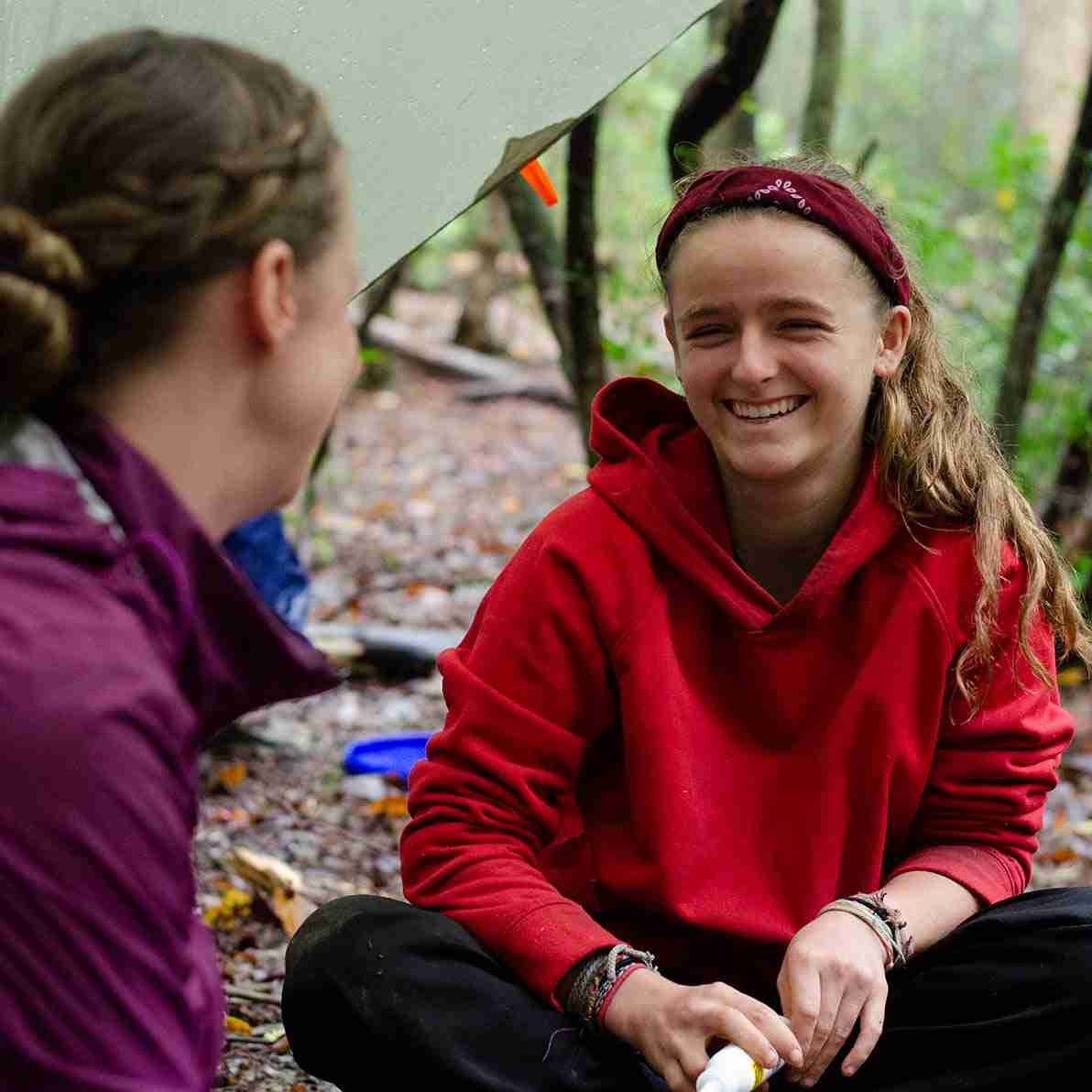Addressing School Refusal with Wilderness Therapy

Understanding and addressing school refusal in your child can be a challenging and emotionally draining journey. The persistently high rates of school refusal, especially in the post-COVID era, have left many parents feeling overwhelmed and unsure of how to support their child's return to the classroom.
At Trails Carolina, we recognize the complexities of this issue and are here to provide guidance and school refusal interventions that work. Our wilderness therapy program is uniquely tailored to help youth and teenagers overcome school refusal and successfully reintegrate into the educational environment for long term success.
Through our holistic approach, evidence-based therapeutic techniques, family involvement, and the therapeutic benefits of nature, we offer a path to healing and growth that empowers both students and families to conquer the school day. If your child is grappling with school refusal, don't hesitate to take the first step towards transforming their life. Discover how Trails Carolina can make a difference and provide the support your family needs.
Understanding School Refusal
School refusal is characterized by persistent refusal to attend school or severe difficulty remaining in the school environment. These behaviors often stem from profound anxieties, such as separation anxiety, school anxiety, or social anxiety, which can manifest physically as nausea, diarrhea, headaches, and other significant distress. It frequently emerges during transitional periods, such as the daunting leap into middle school or high school.
School Refusal vs. Truancy
It's important to differentiate school refusal from truancy. In school refusal cases, the child stays home with the knowledge and consent of their parents or family, despite the parents' attempts to enforce school attendance.
Unlike truants, those who exhibit school refusal are less likely to engage in behaviors such as lying, cheating, or destructive acts in order to avoid school attendance.
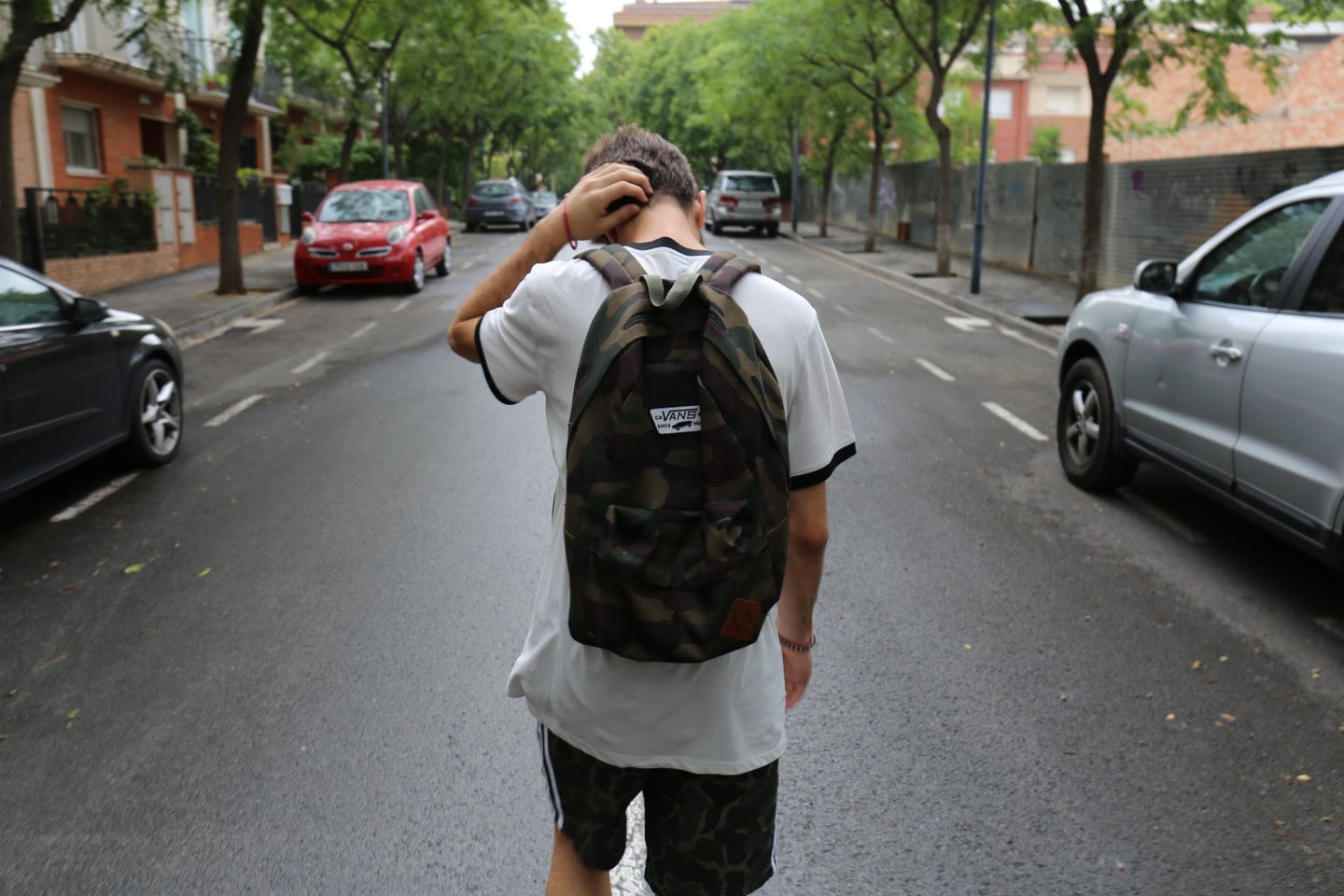
If you've ever seen the classic film Ferris Bueller's Day Off, then you're one step closer to understanding the intricate differences between school refusal and truancy.
In the movie, the character Ferris Bueller, motivated by a desire for adventure and excitement, fakes an illness and manipulates his parents and his principal in order to enjoy a day off from school exploring the city of Chicago with his friends instead of sitting in a boring classroom.
This is an example of truancy, which involves a deliberate and often rebellious choice to skip school without a legitimate reason.
Ferris Bueller's best friend Cameron, on the other hand, wants to stay home, avoiding school and avoiding the day out that Ferris has planned.
Cameron's character is plagued by deep-seated fears and insecurities, primarily stemming from his turbulent relationship with his overbearing father. He embodies the emotional struggles and anxieties that can lead a student to avoid school altogether.
While both Cameron and Ferris disrupt their education, the key distinction lies in their motivations; Cameron's school refusal is driven by emotional distress, whereas Ferris's truancy is a result of his desire for freedom and enjoyment.
Unlike Ferris, Cameron's reluctance isn't about seeking adventure or leisure; it's a poignant depiction of the emotional toll that school refusal can take on a student's well-being and their ability to engage with the educational system.
Check out this episode of our Common Ground Podcast to learn more:
Causes of School Refusal in Youth and Adolescents
At its root, school refusal stems from the thought pattern that "there's something at school that I want to avoid, so I am actively avoiding it by refusing to go to school."
The student might be avoiding a peer group, a bully, social situations, expectations in the classroom, the difficulty of the school work, a particular teacher or school staff, etc.

The specific reasons why children refuse to go to school can vary from individual to individual, but common factors include:
- Anxiety Disorders: School refusal is often associated with separation anxiety disorder and social anxiety disorder.
- Transitional Periods: The stress of transitioning to a new school, such as high school or middle school, can trigger school refusal.
- Peer Relationships: Difficulties in peer relationships can contribute to feelings of discomfort and avoidance of school.
- Sleep Issues: Sleep disturbances can exacerbate anxiety and school avoidance.
- Specific Fears: Certain fears related to school, such as poor academic performance or bullying, can lead to school refusal.
Wilderness Therapy for School Refusal
For youth and teenagers grappling with the debilitating issue of school refusal, Trails Carolina's wilderness therapy program stands out as a uniquely effective intervention.
Our program is carefully designed to target the root causes of school refusal while equipping students with the skills and confidence necessary to reintegrate into the educational environment.
Here's a closer look at why wilderness therapy is an exceptional choice for addressing school refusal:
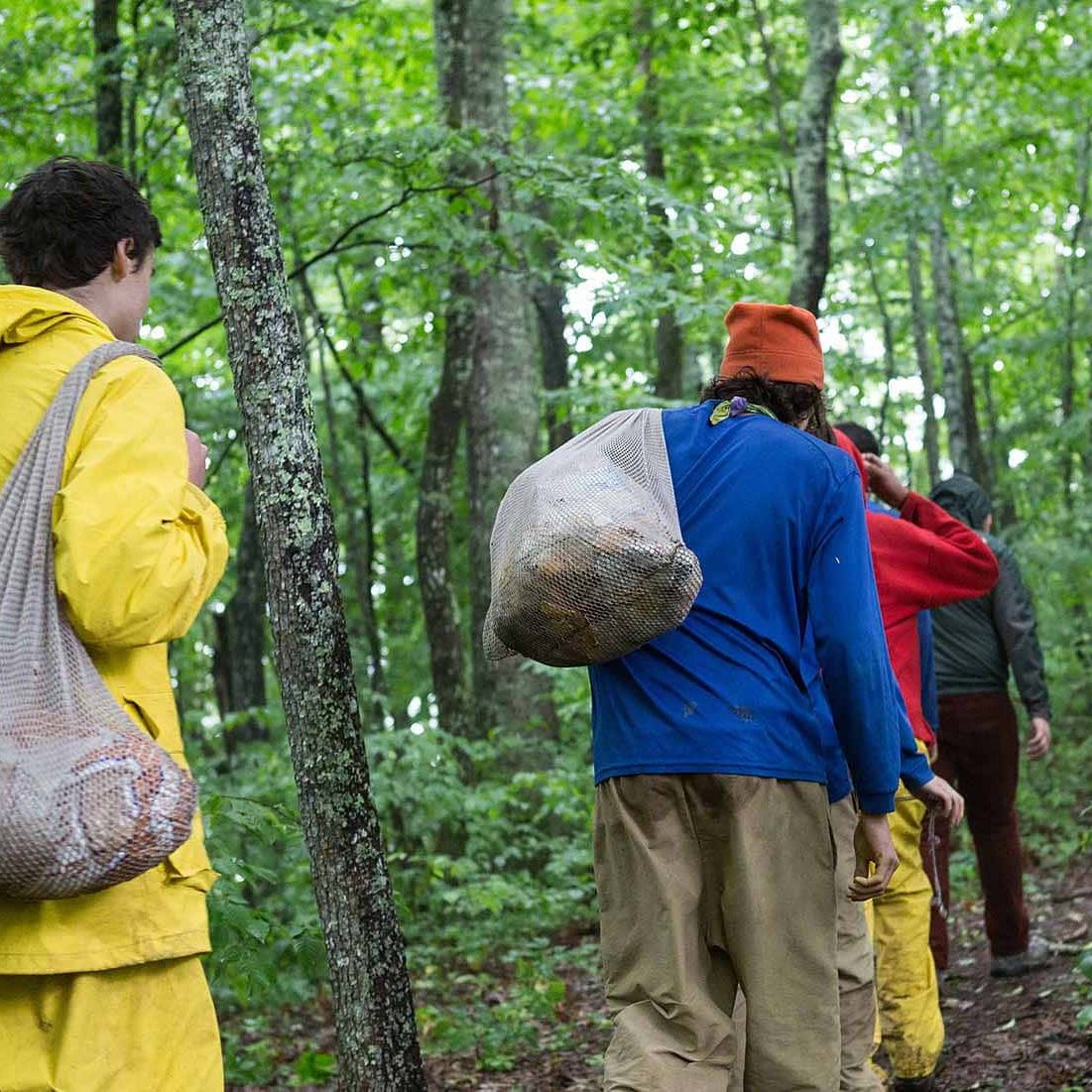
Nature's Therapeutic Benefits
Engaging in wilderness therapy provides youth and teenagers with the opportunity to experience the healing power of nature.
The serene and natural setting offers a break from the stressors and triggers associated with school-based anxiety, allowing students to focus on self-reflection and personal growth.
Nature has been shown to reduce anxiety, boost self-esteem, and promote emotional well-being—key factors in overcoming school refusal.
Independence and Responsibility
The wilderness environment encourages students to take responsibility for their actions and make decisions that impact the group. This newfound sense of responsibility fosters independence and self-reliance, which therapists and teachers say can be crucial for students who struggle with school refusal. It empowers them to take ownership of their education and develop a sense of control over their lives.
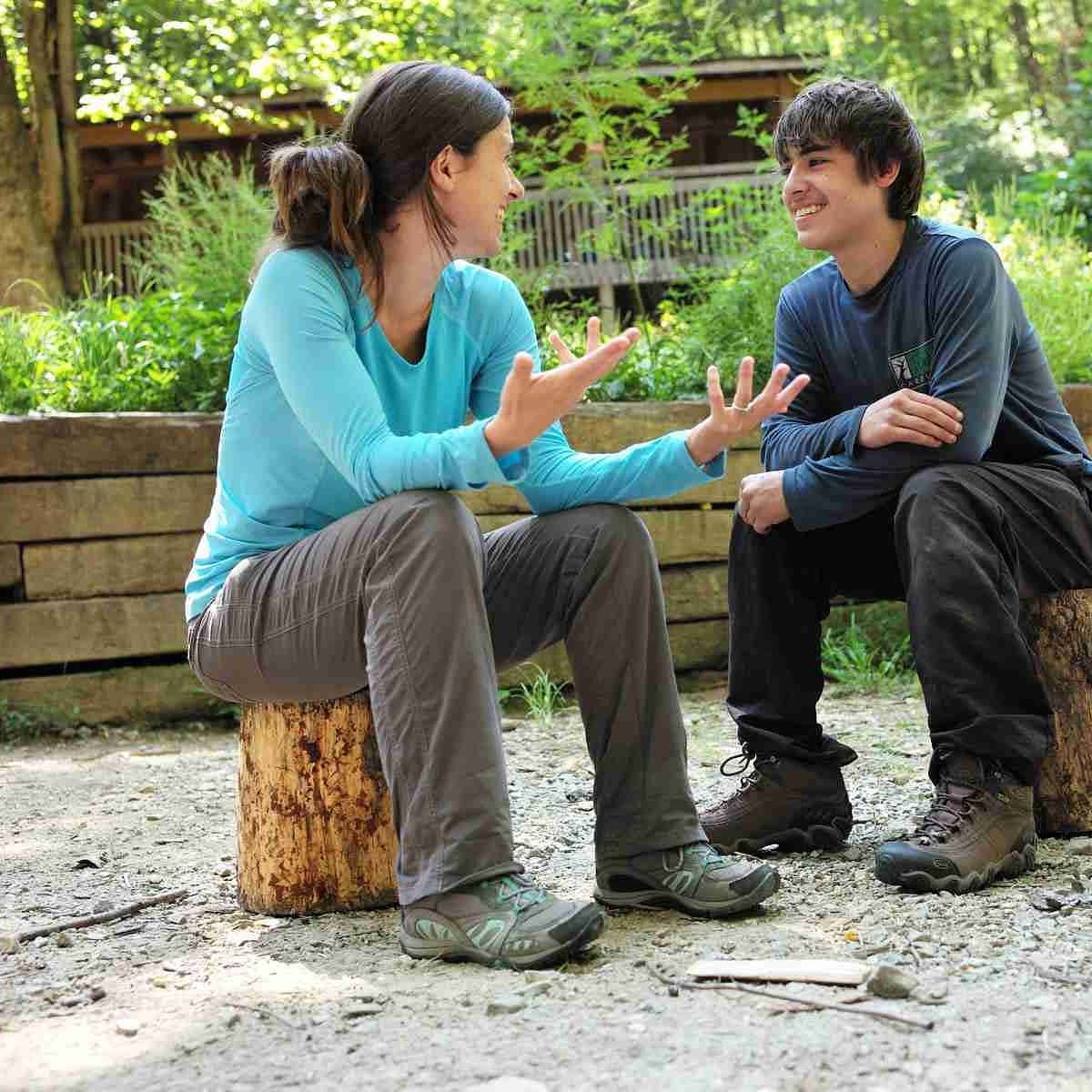
Evidence-Based Therapeutic Techniques
Trails Carolina incorporates evidence-based therapeutic techniques to address the underlying causes of school refusal in teenagers, children and adolescents. Some of these techniques include:
- Cognitive Behavioral Therapy (CBT): Helps individuals confront and manage their anxieties in a supportive environment.
- Exposure Therapy: A form of cognitive therapy that gradually reintroduces students to a school environment, allowing them to face their fears in a controlled setting.
- Relaxation Training: This can include mindfulness and meditation, as well as cognitive behavioral techniques that help students learn to manage anxiety symptoms.

Experiential Learning and Accredited Academics
Wilderness therapy at Trails is rooted in experiential learning. Instead of relying solely on traditional classroom-based approaches, students actively engage in activities like hiking, camping, team-building exercises, hands-on science lessons, and therapeutic art projects.
These experiences promote personal development, leadership skills, and self-confidence. By achieving success in the wilderness, students build resilience and transferable skills that can be applied to their academic lives.
At Trails Carolina, our students also get the opportunity to practice transitioning from an experiential wilderness setting into a more traditional classroom setting for our accredited academic programming. This structured transition exposes students to the academic setting again, helping them to overcome anxiety and depression that often trigger school refusal.
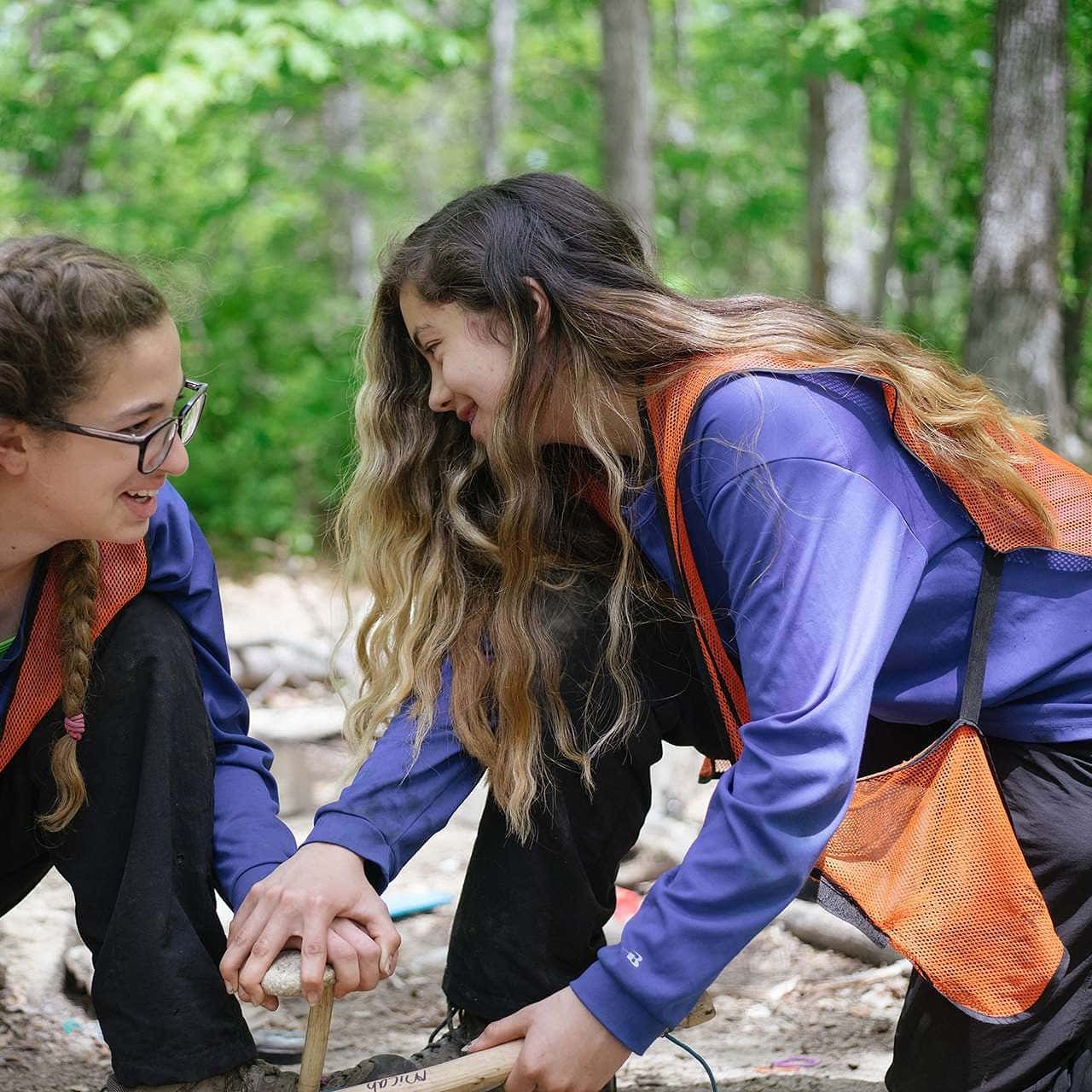
Holistic and Personalized Approach
Wilderness therapy at Trails Carolina takes a holistic approach to healing. We recognize that school refusal is often a symptom of deeper emotional, social, or psychological challenges and we understand that every student's journey is unique.
Rather than simply addressing surface-level behavior, our well-trained and compassionate staff work closely with each individual to identify the root issues behind their school avoidance.
This approach is crucial for achieving long-lasting results and successful school reintegration. This process includes:
- Root Cause Exploration: We actively delve into the underlying factors fueling their school avoidance.
- Tailored Treatment: This in-depth understanding shapes a customized, comprehensive treatment plan.
- Targeted Support: The plan addresses the precise needs and challenges of each student.
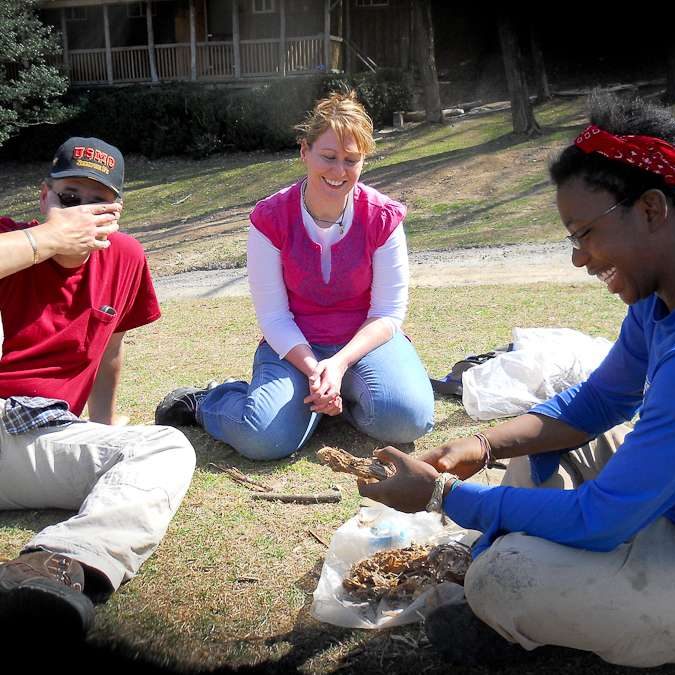
Involving Families in the Healing Process
Family involvement is pivotal at Trails Carolina, addressing school refusal effectively for several reasons. Not only does it help resolve the root causes often tied to family dynamics, our family involvement programming also provides essential ongoing support for students struggling with school refusal, offering a secure space for skill application after therapy.
Additionally, family engagement reinforces therapeutic progress through regular calls and letters, ensuring the integration of wilderness therapy-acquired skills into daily life. By becoming part of our therapeutic community, families contribute to students' sense of belonging and security.
Ultimately, family involvement equips both students and families with tools for navigating future challenges and fostering enduring growth and success.
At Trails Carolina, we actively engage families at every step of the therapeutic process. This includes:
- Weekly Calls: Regular communication between the child, their primary therapist, and the parents to keep them updated on their child's progress.
- Family Therapy Sessions: Collaborative therapy sessions involving both the student and their family.
- Weekly Letter Exchanges: Students and their families exchange letters to strengthen communication and understanding.
- Parent Workshop: Parents connect to learn important tools.
School Refusal Post-COVID
In the wake of the COVID-19 pandemic, school refusal has seen a concerning uptick, with many students finding it increasingly difficult to transition back to traditional classrooms.
However, Trails Carolina's comprehensive approach is uniquely suited to addressing this challenge. Our action plan for the return to school and refusal interventions includes a transition model specifically designed to support students in navigating this return to school.
By blending experiential learning in the wilderness classroom with accredited academics in a traditional classroom setting, Trails Carolina creates an environment that eases students back into the educational system.
The experiential approach provides a bridge between the remote learning experiences of the pandemic and the classroom, allowing students to regain their confidence and adaptability.
Our accredited academic program ensures that students continue their education, helping them stay on track academically while they work through any emotional or psychological challenges. Together, these components equip students with the tools and resilience they need to successfully reintegrate into their school environments, minimizing the impact of post-COVID school refusal.
Additional Research on School Refusal
Several studies have shed light on the complexities of school refusal:
- A 2022 review, "School Refusal in Youth: A Systematic Review of Ecological Factors," found that school refusal interventions that included parental involvement and therapeutic techniques were most effective. Therapies like DBT and CBT can emphasize parental involvement for effective school refusal resolution. The review suggests tailoring interventions to address specific non-attendance factors. For example, if a student's school refusal is driven by anxiety related to academic performance, CBT can help reframe negative academic thoughts. To comprehensively address SR and its determinants, a holistic assessment is crucial.
- A 2008 study titled “Separation Anxiety Disorder and School Refusal in Childhood: Potential Risk Factors for Developing Distinct Psychiatric Disorders?” found strong associations in many children between depression and separation anxiety disorder and an increased risk of school refusal. The research highlighted various factors, such as peer relationships, sleep issues, somatic complaints, and specific fears, linked to school refusal.
- A 1990 study titled “School refusal in anxiety-disordered children and adolescents” conducted by the National Institute of Mental Health examined 63 children and adolescents with school refusal. The results revealed two distinct groups: those with separation anxiety-related school refusal and those with a phobia of school. Phobic school refusers tended to experience more severe school refusal and started avoiding school at a later age.
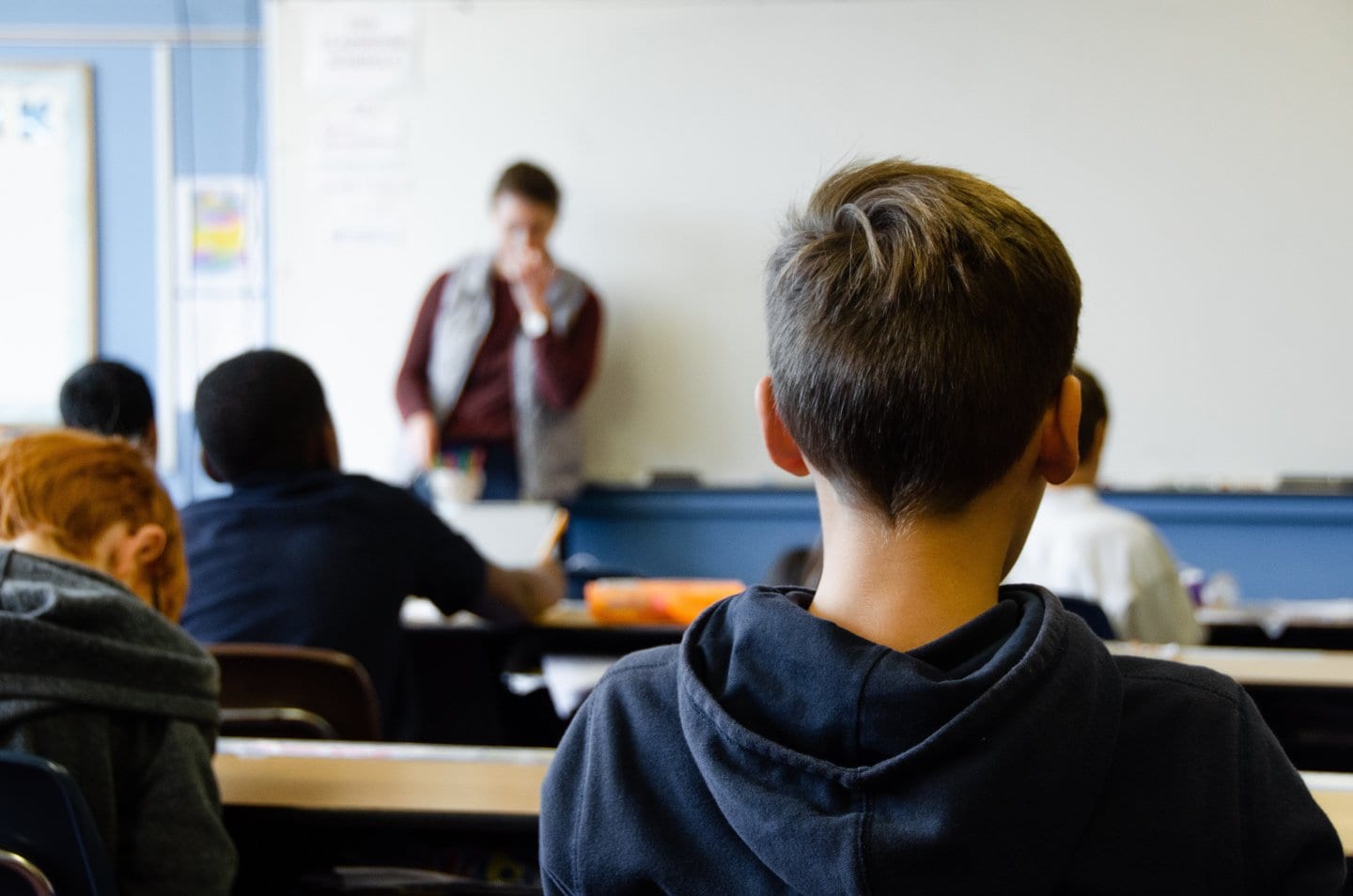
School refusal is a challenging issue that requires understanding and tailored interventions. Wilderness therapy at Trails Carolina offers an effective and personalized approach to help teenagers overcome their school refusal. Through evidence-based therapeutic techniques, family involvement, and the transformative power of nature, we support adolescents and teens on their journey towards healing and growth.
If your child is struggling with school refusal, don't hesitate to contact Trails Carolina to learn more about how we can help. Call Now or Request More Info to take the first step towards getting your child's behavior back on track.
Get started today
Contact us today to learn how Trails Carolina can help your family
Trails saved my daughter’s life. Amanda is an amazing human and a brilliant therapist. I am so grateful to her, Science Steve, and the other wonderful people who could reach my daughter at a time when I could not.
Margot Lowman August 2022
Great life changing experience for our son. After becoming addicted to gaming during covid he was very depressed. At Trails he experienced the wilderness, Science Steve, learning survival skills and top notch therapy and support etc… I highly recommend! This gave our son and our family a renewed family bond full of love and excitement about his bright future.
Winnifred Wilson July 2022
Outstanding clinical work and superb staff! There’s a great culture at this company and it shows with how they engage with families/clients.
Kristin Brace June 2022
School Refusal FAQs
At Trails Carolina, we address school refusal through a combination of wilderness therapy, individualized holistic treatment plans, intentional transition practice, family involvement in the therapeutic process, and accredited academics. Our experienced therapists work with students to identify the underlying causes of their school refusal and develop coping strategies to manage their anxiety and fears about attending school.
Dealing with the dread of going back to school involves creating a supportive and positive environment at home and around the topic of school. At Trails Carolina, youth and teens participate in two academic classes where they are building self-esteem and self-confidence, developing resilience and coping skills. We also work on addressing the specific fears and anxieties related to school and offer a safe space to explore and process these feelings. Once home, creating consistent morning routines to prepare mentally for an entire day of school can help get your child to school.
School avoidance anxiety is treated through a combination of evidence-based therapeutic techniques, such as cognitive-behavioral therapy (CBT), motivational interviewing and mindfulness practices. At Trails Carolina, our therapists work closely with students to identify the root causes of their anxiety and provide tailored interventions to help them manage and overcome their school avoidance.
The best treatment for school refusal often involves a multifaceted approach that combines therapeutic interventions, behavioral strategies, and family involvement. At Trails Carolina, we offer a comprehensive wilderness therapy program that addresses the underlying issues causing school refusal and provides a supportive and therapeutic environment for adolescents to develop coping skills and build self-confidence.
Behavioral interventions for school refusal may include setting up a structured routine, gradual exposure to school-related activities, positive reinforcement, and rewards for attending school. Trails Carolina incorporates elements of these same school based interventions in our wilderness therapy program by encouraging students to participate in group activities and responsibilities, reintroducing a school environment through our accredited academic programming, and reinforcing positive behaviors.
To help your child overcome school refusal, it's important to listen to their concerns, seek professional help, and maintain open communication with them and the school staff. At Trails Carolina, we involve families in the treatment process through family therapy and support, providing parents with tools and strategies to assist their child in overcoming school refusal.

